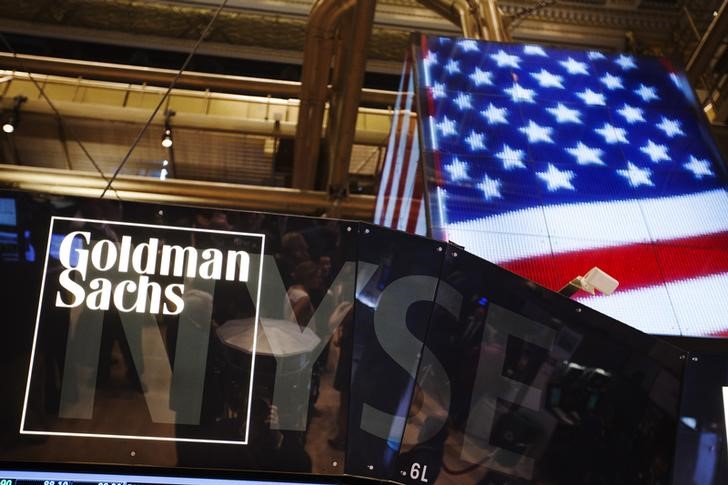SHANGHAI (Reuters) – Global investment houses have rushed to downgrade forecasts for the after it weakened past the closely watched 7 per dollar level, pressured by widening yield differentials with the United States and signs that Beijing is ready to roll out more stimulus to support a bumpy post-COVID economic recovery.
The yuan has lost nearly 4% to the dollar so far this year, making it one of the worst performing Asian currencies. It last traded at 7.1643 per dollar on Wednesday.
Here is a summary of some forecasts for the Chinese currency:
END-2023 FORECASTS
INVESTMENT HOUSE NEW OLD
Credit Agricole (OTC:) 6.95 6.70
Goldman Sachs (NYSE:) 7.0 (in six 6.7
months)
J.P.Morgan 7.25 6.85
Maybank 6.95 6.65
Mizuho Bank 6.9 6.7
Morgan Stanley (NYSE:) 7.1 6.65
RBC Capital 7.15 6.6
Markets
Societe Generale (OTC:) 7.3 6.9
UBS 6.9-7 6.8
KEY COMMENTS:
** CREDIT AGRICOLE
“From a current account perspective, we see the dynamics as still lesssupportive than before. The renewed widening of the services deficit and also capital account outflows is driving more foreign currency demand onshore.”
“Despite the rise in the trade surplus, the foreign-related balance onshore has declined suggesting a shift away to trade but also more foreign currency being withheld. In the current context though, corporates refraining from selling foreign currency does not favour CNY appreciation. While this can be positive for the CNY once CNY expectations shift, that is not playing a role at this time.
** J.P. MORGAN
“Looking ahead, CNY FX is set to remain pressured by structurally negative carry that handicaps CNY supportive flows including foreign portfolio investment (FPI) bond inflows and corporate USD selling.”
“The People’s Bank of China’s (PBOC) tolerance of currency weakness in the absence of speculative froth also opens up room for further CNY weakness, with seasonal dividend payout flows an added bearish factor over the short run.”
** RBC CAPITAL MARKETS
“The PBOC has also shown tolerance in USD/CNY’s rise through the key 7.0 level this time, which may indicate a shift towards accepting controlled currency depreciation to help support the economy. The trade-weighted CFETS Index remains well above its pandemic-driven 2020 lows, and there is both fundamental justification and room for further depreciation.”
** GOLDMAN SACHS
“We expect the goods trade surplus to narrow in the next few months from the current elevated level, though FX conversion ratio for goods trade surplus has been low in recent months at the same time as the services deficit may expand on the back of re-opening international travel.”
** UBS
“UBS’s U.S. economics team recently revised its Fed fund rate projection, now expecting 25 basis points (bps) rate cut within the year in December meeting vs. its previous expectation of a 100 bps cut within the year starting from September.”
“Thus, the yield spread might not narrow as much as we expected. Furthermore, China’s growth recovery has been weaker than expected so far. This may be dragging short term portfolio inflows.” (This story has been corrected to change Credit Agricole’s previous forecast to 6.7 from 6.75 in the table)
Read the full article here
